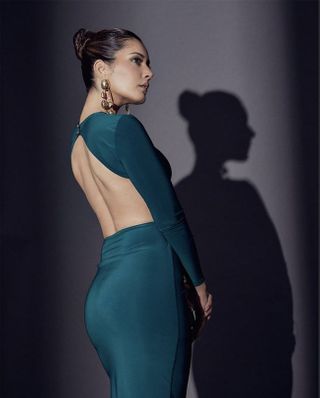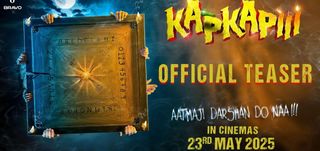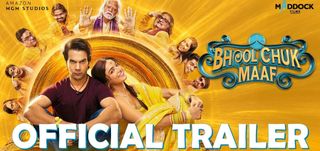Bewafaa Movie Review
In one of the initial lines of the movie Kabir Bedi who plays an NRI father in the film says, “Hum Indians ko hasne se zyada rone mein mazaa aata hai (Indians prefer crying over laughing). Chalo ghar chal kar Bollywood film ki taraf ji bhar ke rote hai (Come lets move home and cry heartily like in a Bollywood film)”. These two lines precisely give a gist of the film Bewafaa. While the first line points out the target audience of the film (criers), the second line talks about the genre of the film (Bollywood tear-jerker).
One word to describe Bewafaa is ‘predictable’. The proceedings of the film are foreseeable in every damn aspect. Though the buzz was that Bewafaa is inspired by BR Chopra’s "Gumrah", the story of the film is simply a rehash of Yash Chopra’s "Silsila" with just a swap in the gender of the lead protagonists. (Kareena portrays Amitabh’s part over here). The déjà vu feeling is all the more intensified with director Dharmesh Darshan still being in the "Dhadkan" mode. Add to it a caricature character of Manoj Bajpai having shades of Naseruddin Shah from the smalltime 1982 flick Bezubaan. And no prizes for guessing who gets the girl in the end! With all the sanskaar sermonizing, the bharatiya naari indisputably opts for the conventional conclusion with a "Hum Dil De Chuke Sanam" end.
Another word to describe Bewafaa is ‘fake’. Everything from Kabir Bedi’s nanak guru granth dissertations to Nafisa Ali’s Hindi accent to Sushmita Sen’s five-month pregnancy status (with a flatron flat tummy) to Anil Kapoor’s pining for his dead wife and needless to add Kareena Kapoor’s overall expressions appear anything but genuine.
Dharmesh Darshan never had a good flair for humor in his films (best case in point "Mela") and Bewafaa just reaffirms your faith in the fact. Here too he unsuccessfully tries to amuse with an outrageously hamming Manoj Bajpai. You just thank the director that he introduced Bajpai’s character much late in the film though he could have surely done with his complete exclusion from the entire film. Bajpai’s dialogue delivery has a tremendous impact but in all the wrong sense. Every word of his spewed in a stressed English accent has the impact of a mallet hammering on your head. In short he is a pain to the eye, ear or in general all your senses. Moreover Kabir Bedi and Nafisa Ali’s nana-nani dance has to be seen to be believed.
Apart from choosing the mundane triangular love story formula (yawn yawn!), another point where Darshan fails is that his screenplay lacks conviction. The proceedings of the film fail to connect with the audience and at the end there isn’t a single scene that the viewer takes back with him.
The only saving grace of the film is Akshay Kumar who tries to infuse life in the otherwise dead film, whenever he appears onscreen. However his sincerity, like always, is marred by a weak storyline. A special mention to his suave and trendy look in the film (adorned with the flamboyant lockets around his neck) that he carries off with remarkable elegance!
Nadeem Shravan’s couple of melodious tunes provides intermediate moments of relief in the form of the energetically rendered title track in both the versions (Udit Narayan and Sonu Nigam).
After losing love and luck by the climax, Akshay Kumar concludes the film (actually attempts to console the audience for the time wasted) saying, "Kehte hai pehla pyaar bhulaya nahi jaata. (It’s said that first love is unforgettable). Magar aaj ke zamane main yeh saari baatien outdated ho chuki hai (But these talks are outdated in the present age)". How we wish director Dharmesh Darshan realized the meaning of this line before making a film on this outdated subject where ironically all he shows is two men who cannot forget their first love.
Bewafaa is simply unfaithful when it comes to providing entertainment.



















